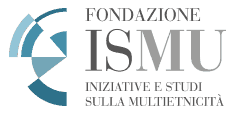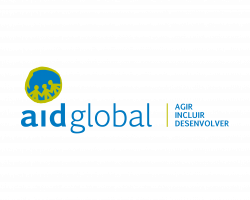NEAR is a two-year project funded by the European Commission under the Asylum, Migration and Integration Fund (AMIF), relied on a consortium made up of Iniziative e Studi sulla Multietnicità (ISMU, Italy), Tamat NGO (ITALY), Cardet NGO (Cyprus), AidGlobal (Portugal), UCSC (Italy).
Presentation “The Twenty-fifth Italian Report on Migrations 2019”
3 February 2021
At a crossroads: Unaccompanied and separated children in their transition to adulthood in Italy
3 March 2021Presentation “The Twenty-fifth Italian Report on Migrations 2019”
3 February 2021
At a crossroads: Unaccompanied and separated children in their transition to adulthood in Italy
3 March 2021
NEAR will do so by
- empowering community agents – members of diaspora associations – on how to inform newly arrived migrants >> training
- supporting asylum seekers and IP holders in their participation in labor market >> orientation, training, agriculture labs
- fostering integration of newly arrived minors in compulsory school age >> workshops, labs, urban tours, events
- providing orientation for newly arrived University students in their access to academic path >> conventional and unconventional maps, handbook, networking
- promoting exchanges and interactions between local communities and newly arrived migrants through a communication campaign (maps, treasure hunting), built together with NEAR beneficiaries
- disseminating project’s outcomes and reaching a wider audience (video documentary, website, newsletter, social media, press release)
News from the project
New insights from the NEAR – NEwly ARrived in a common home project
NEAR European workshop presents the project results and fosters reflection on local engagement strategies
On 8th February Fondazione ISMU (Iniziative e Studi sulla Multietnicità) organised a European Workshop on “Building inclusive cities together – How to enable diaspora stakeholders in the development and provision of local integration services”. The event marked the official end of NEAR – Newly Arrived in a Common Home, a project funded under the EU Asylum, Integration and Migration Fund that aims at fostering social orientation of newly arrived migrants during their settlement in the receiving countries.
Treasure hunt through the streets of Milan. A chance to (re)discover the neighbourhood between the Central Station and the Martesana Canal
Available on the NEAR website the maps for migrants and local citizens implemented in Milan, Perugia, Lisbon and Nicosia – Press Release 14.6.2022
In Milan the neighbourhood around the railway of the Central Station will turn into the place where in the next two years we will be developing ideas, events and relationships!
The choice of this district was inspired by the Central Station as a place of exchange, a very meaningful place for many newcomers arriving in Milan, as well as the place where ISMU has its headquarters.
A remarkable neighbourhood, where through a number of activities in which we will involve citizens and newcomers, we aim at reshaping the narrative linked to the Central Station.
Stay tuned!
Strategy/Methodology
- working on a local level (Lisbon, Nicosia, Perugia and Milan)
- employing a botton-up approach
- peer-to peer strategy
Beneficiaries
- newly arrived (adults, child and university students), members of diaspora, diaspora associations, volunteer associations, local communities, wider public, national and European organizations

NEAR is a two-year project (March 1st 2021 – February 28th 2023)
funded by the European Commission under the Asylum, Migration and Integration Fund (AMIF – 2019)









